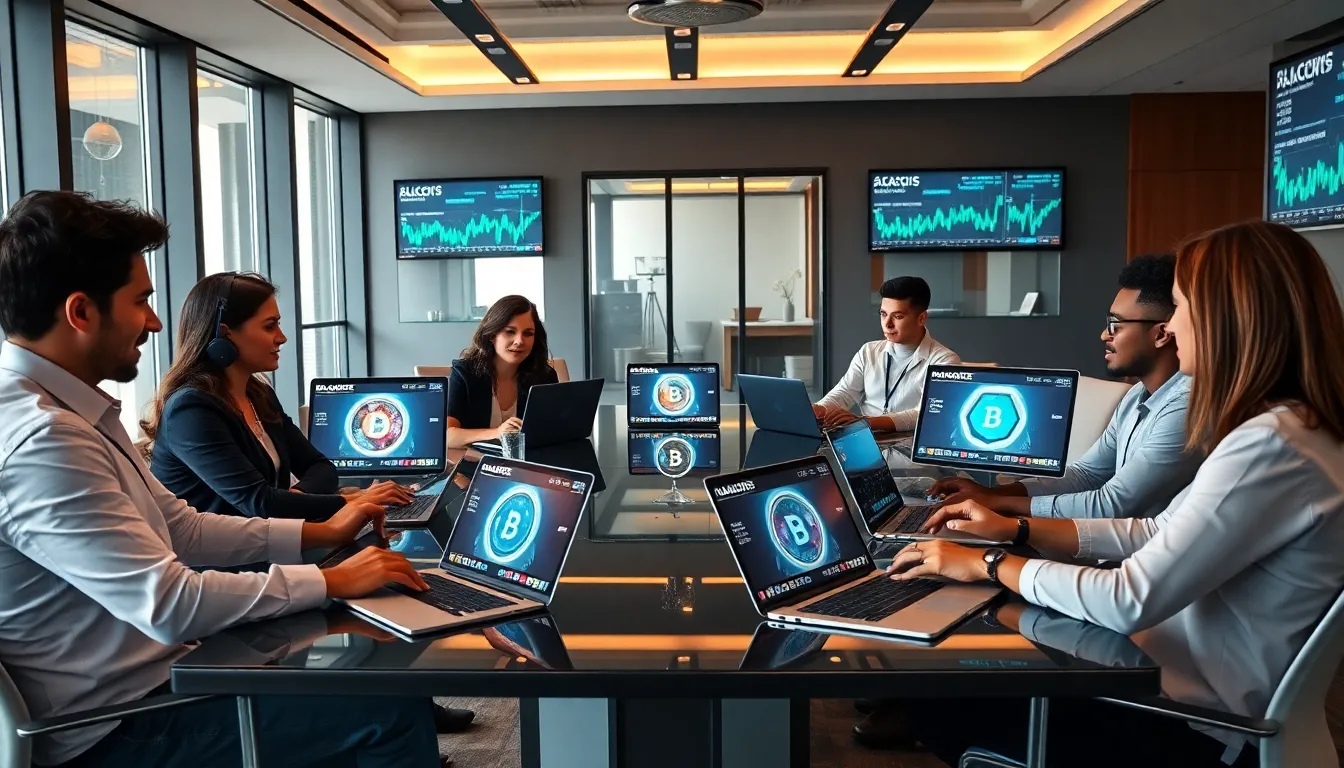Altcoin wallets can feel like that mysterious dark alley you’re hesitant to walk down at night. But fear not. This guide will shine a light on everything you need to know about altcoin wallets, including the donut and Bitclassic varieties. Whether you’re an aspiring crypto connoisseur or just trying to find a safe place for your digital treasures, this article is your roadmap to avoiding pitfalls and uncovering hidden gems in the world of altcoins. Ready to embark on this digital adventure? Let’s immerse.
Table of Contents
ToggleUnderstanding Altcoin Wallets

In simple terms, altcoin wallets are digital vaults that securely store your cryptocurrency, beyond Bitcoin. They come in various forms, each with unique features and benefits. Different from traditional wallets, these digital versions can hold multiple currencies, including the likes of donut and Bitclassic.
The Importance of Wallets
Having a robust wallet is crucial for anyone involved in cryptocurrency. If you think of your altcoins as valuable collectibles, the wallet is like your secure display case. It keeps your assets safe from prying eyes and potential lost opportunities. Understanding how these wallets function can give you peace of mind, ensuring that your altcoins are readily accessible yet protected from hackers and cyber threats.
Wallet Functions
Beyond storage, altcoin wallets allow you to send and receive various cryptocurrencies and monitor your holdings. These features make them indispensable tools in the altcoin ecosystem. They not only simplify transactions but also help you keep track of your portfolio’s performance.
Types of Altcoin Wallets
With a plethora of altcoin wallets available, how does one choose? Here’s a quick rundown of the main types you’ll encounter:
1. Software Wallets
Software wallets are applications that can be downloaded on your computer or smartphone. They offer ease of access and often come with user-friendly interfaces. Hot wallets, a subset of software wallets, are always connected to the internet. They are great for quick trading but might expose you to higher risks due to potential hacking attempts.
2. Hardware Wallets
For those who prioritize security, hardware wallets act as offline storage, keeping your altcoins safe from online threats. These devices look like USB drives and require manual intervention to access your funds, adding an extra layer of security.
3. Paper Wallets
Though somewhat archaic in this digital age, paper wallets are still relevant. They involve printing your public and private keys on paper, making them immune to online attacks. But, you’ll need to handle them with care: losing a paper wallet is equivalent to losing your coins.
4. Web Wallets
Accessible via your browser, web wallets offer convenience and quick access, often favored by casual users. But, like hot wallets, they come with increased risks as your keys are stored online, making them susceptible to breaches.
Selecting the Right Wallet for Donut and Bitclassic
Choosing a suitable wallet for donut and Bitclassic involves several considerations:
Assess Your Needs
First, evaluate how frequently you plan to use these altcoins. If day trading is on your agenda, a software or web wallet might be ideal due to their accessibility. But, for long-term holding, a hardware wallet would provide enhanced security.
Wallet Support
Next, confirm that the wallet you select supports both donut and Bitclassic. Not all wallets accommodate every altcoin, so you’ll want to do your assignments. Commonly, dedicated altcoin wallets will list compatible currencies.
User Experience
Finally, consider the intuitiveness of the wallet interface. If you’re new to the altcoin scene, you might prefer a wallet that offers a straightforward and friendly user experience.
How to Acquire Donut and Bitclassic
Once you’ve selected your wallet, the next step is acquiring donut and Bitclassic. Here’s how:
Buying Through Centralized Exchanges
Centralized exchanges, such as Binance and Coinbase, allow you to buy altcoins using traditional currencies. Simply create an account, complete the KYC process, deposit funds, and trade for the altcoins.
Decentralized Options for Acquiring Altcoins
If you lean towards privacy and control, decentralized exchanges (DEXs) like Uniswap may suit you better. These platforms allow users to trade directly without intermediaries, although they come with their share of complexities.
Setting Up Your Wallet for Use
Setting up your altcoin wallet doesn’t have to feel like rocket science. Here’s a straightforward guide to get you going:
- Download or Order Your Wallet: If it’s a software wallet, download the application from the official site. If it’s a hardware wallet, order it directly from a trusted manufacturer.
- Create an Account: For software wallets, follow the prompts to create a secure account. You’ll usually need to set a strong password.
- Back Up Your Wallet: This step is crucial. Make sure to back up your recovery phrase. If anything goes awry, this phrase can help you regain access to your wallet.
- Transfer Funds: Once your wallet is set up, transfer your donut and Bitclassic into it. Follow the necessary steps to generate receiving addresses for each currency.
Safety and Security Tips for Holding Altcoins
Keeping your altcoins secure is paramount. Here are some safety tips to ensure your investments remain intact:
1. Regular Software Updates
Always keep your wallet software updated. Developers frequently release patches that strengthen security measures. Ignoring updates is like leaving your front door wide open.
2. Enable Two-Factor Authentication (2FA)
For added security, enable two-factor authentication. This feature requires a second form of verification, significantly reducing the risk of unauthorized access.
3. Beware of Phishing Scams
Phishing scams are everywhere in the crypto world. Always double-check website URLs, and never provide your private keys to anyone. If an offer seems too good to be true, trust your instincts.
4. Store Private Keys Securely
Your private keys are the keys to your digital treasury. Never share them and store them in a safe location, ideally offline.
5. Use a Hardware Wallet for Long-Term Storage
For long-term investments, a hardware wallet is your best bet. Think of it as a safety deposit box for your digital gold.






